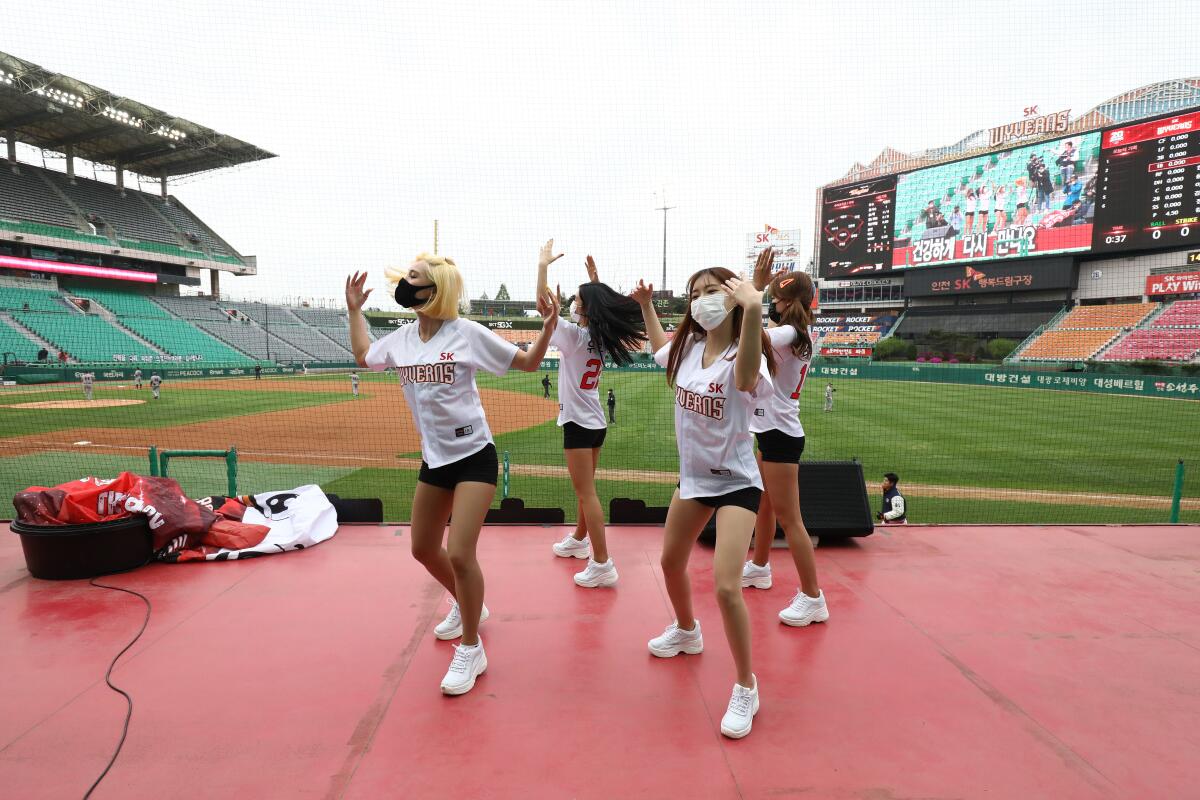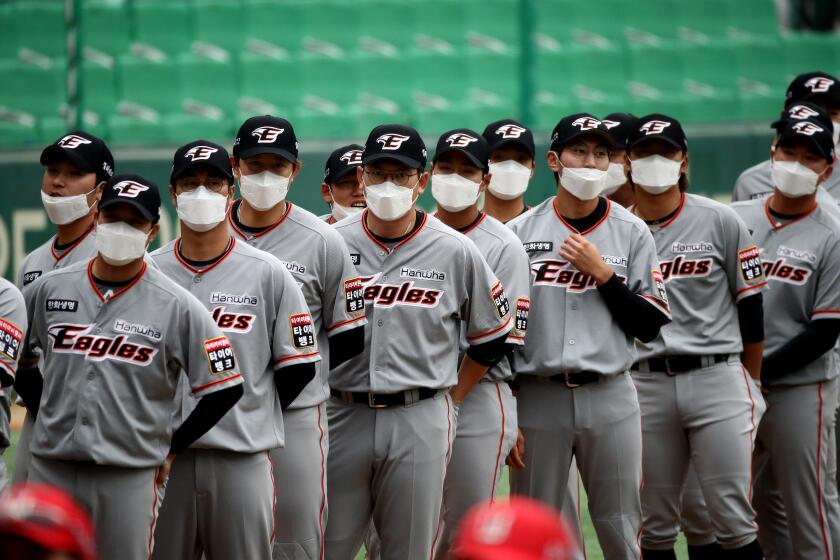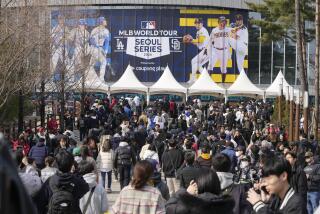Column: Billing late-night Korean baseball as the return of live sports on TV is a stretch

The baseball gods have a sense of humor, their latest example of mischief broadcast nationally Monday night.
With a new deal to televise Korean league games, ESPN trumpeted the return of baseball, the anchor of the preceding “SportsCenter” program introducing the opening day contest between the Samsung Lions and the NC Dinos by declaring, “Live sports is back.”
Well, almost.
Rain was falling in the city of Daegu, the resulting delay prompting an interview with former Korean Baseball Organization MVP and current major leaguer Eric Thames to be clumsily stretched to nearly 20 minutes.
The game, in which the Dinos prevailed 4-0, didn’t represent a step toward normalcy as much as it did the desperation that has swept over the United States.
Originally scheduled to start at 1 a.m. on the East Coast, the game could have cured the most severe case of insomnia. Talk about a non-habit-forming sleep aid.
While much of the world is under lockdown, baseball returned to South Korea on a day when the country reported just three new cases of COVID-19.
The absence of a crowd didn’t help. More critical was how the American audience knew nearly nothing about the contestants. Combat sports can overcome such a lack of familiarity. The possibility that a fellow human being could be injured or killed can be enough to convince a neutral observer to become emotionally engaged. Baseball doesn’t have that luxury. Remove the reservoir of thoughts and feeling developed over multiple generations and what remains is a slow-paced game in which spectators have no rooting interests or story lines to follow.
This was entirely expected, but, as the cliché goes, desperate times call for desperate measures.
Desperate for viewers when the country is shut down because of the coronavirus outbreak, ESPN gambled that enough sports fans are desperate for live competition that they will drastically change their sleep schedules and form a niche audience. Three of the six games that will be televised every week start at 2:30 a.m. Pacific Daylight Time.
The network’s ongoing documentary series on Michael Jordan and the Chicago Bulls has feasted on this hunger. The shows include previously unseen footage but otherwise don’t break ground. The series has nonetheless received fawning reviews from journalists, who sound as if they are auditioning for roles as ESPN publicists.
If the sports industrial complex has a vested interest in making “The Last Dance” appear as if it’s a transcendent event, their customers do too. It helps them maintain sanity in a period of extreme uncertainty. The collective anxiety is based in the very nature of the virus, as well as apprehension over the reliability of information. There are varying opinions over how to best navigate this pandemic. Some are politically based, but some aren’t.
Major League Baseball couldn’t properly handle a sign-stealing scandal. What makes anyone think Commissioner Rob Manfred can navigate a season around a global pandemic?
Maybe some of the speculative stories about baseball returning are based in reality. Maybe spring training can start next month and the season a month after that. Whatever the case, skepticism over motives and a convoluted informational landscape promise to make the road particularly complicated. Opening day feels distant.
Until then, the country will have to settle for this, the retelling of a well-known basketball story and baseball from a second-rate league that can serve as lullabies for adults.
More to Read
Go beyond the scoreboard
Get the latest on L.A.'s teams in the daily Sports Report newsletter.
You may occasionally receive promotional content from the Los Angeles Times.












